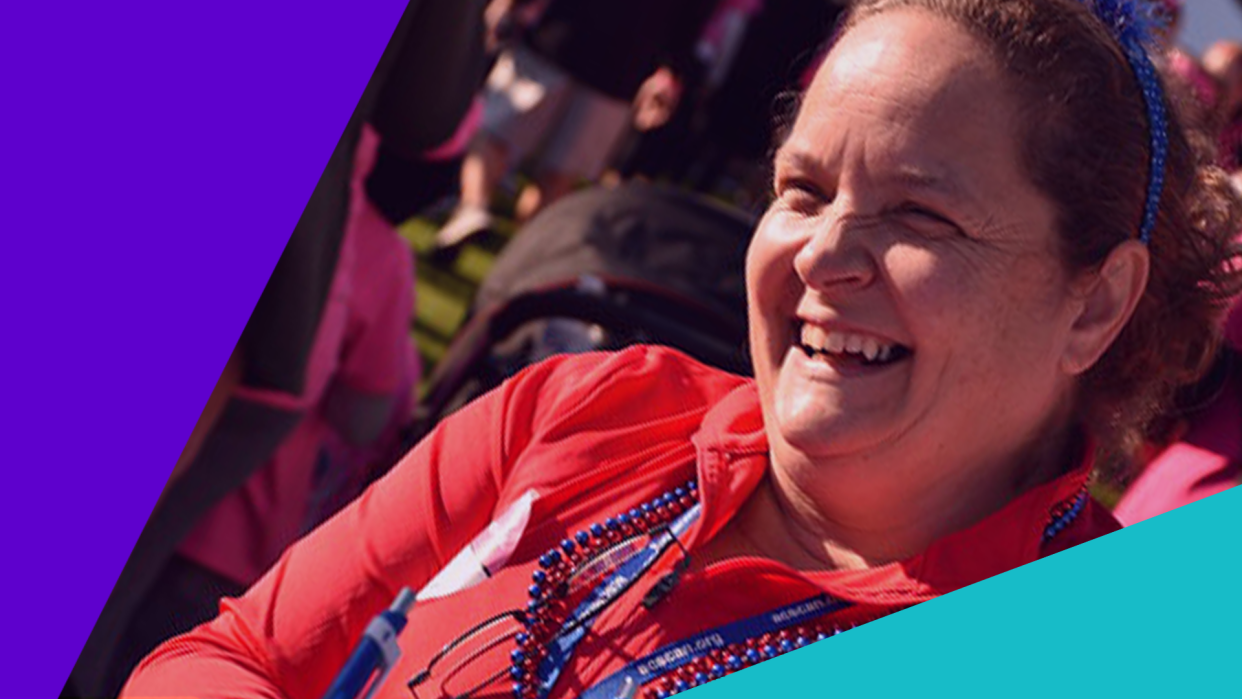'I wouldn’t wish that on anyone': How this woman lost 33 family members to cancer

Many people who advocate for cancer research ave lost a family member to the disease. Patti Morris has lost 33.
Her mother was diagnosed with lung cancer in 1989, when Morris was 21. “My mom had her whole left lung removed. It was horrible, the worst experience. We watched her struggle for a long time,” she recalls. “I wouldn’t wish that on anyone.”’
“I was close to her but we weren’t really told about her diagnosis until she was very sick and in the hospital,” Morris says. Unfortunately, Morris’ family history with cancer didn’t end there.
Morris, 52, tells Yahoo Life that cancer has been a part of her family since before she was born—it just wasn’t really acknowledged. “Growing up, we didn’t discuss cancer,” she says. Morris says that, while she knew as a child that certain family members had gotten sick, it wasn’t until her aunt developed lymphoma and died from the disease that she developed a heightened awareness of cancer and its impact on her family.
Morris’ mother also went through chemotherapy and, after her treatment was finished, the family connected with the American Cancer Society. There was no fundraising walk for lung cancer research at the time, so Morris’ family did a walk to raise money for breast cancer research in 1990. “We did it for a long time after that,” Morris says.
Morris eventually became involved in the American Cancer Society again a few years later, when her daughter’s daycare took part in Relay for Life, a fundraising event for cancer research. “I didn’t know anything about Relay for Life at the time,” she says. “I just knew they raised money for research and I wanted to be involved in that.” At the time, her father had colon cancer and prostate cancer. He eventually recovered but, in the early 2000s, he developed bladder cancer.
Her advocacy work grew from there.
Morris ended up joining a committee for Relay for Life, and eventually co-chaired the committee. “After two years, they ask you to step back to let someone else lead,” she says. “But, in 2004, I was asked to stay on and do advocacy.”
That’s when Morris joined the American Cancer Society Cancer Advocacy Network (ACS CAN). “I learned what it was to be an advocate,” she says. “I started going down to D.C. to lobby for cancer research.”
Every September, Morris meets with lawmakers to try to obtain funding for research. “Any bill that needs to be explained to them, we help with,” she says. “I was hooked. I’m stuck with ACS CAN and they can’t get rid of me.”
But the cancer diagnoses kept coming.
In 2012, Morris’ mother was diagnosed with breast cancer. She had a lumpectomy, a breast-conserving procedure that removes the cancer while leaving as much normal breast as possible, and survived.
In March 2015, Morris’ mother in law was diagnosed with stage 4 lung cancer. She died just a few weeks later. “My sister-in-law was at my mother-in-law’s funeral, and she was very sick,” Morris recalls. “Doctors kept telling her that her shortness of breath was due to anxiety, but I knew in my head and heart that she had cancer.”

Just a few months later, Morris’ sister-in-law was diagnosed with stage 4 lung cancer. And, a month after that, she died. “It was the same cancer that my mom had been diagnosed with in 1989 and survived,” Morris says. “The difference was our access to care.”
In 2018, Morris’ mother was again diagnosed with cancer. “It was in her right lung. It was very aggressive, and had gone into her liver, kidneys, spine and brain,” Morris says. “Doctors told us they wanted to do radiation therapy, but they didn’t know how long she had.” In October 2013, Morris’ mother made the decision to stop treatment. She died a few days later.
“I made a promise to her that I would continue to advocate for people that we’ve lot to cancer, and for people who don’t have a voice,” Morris says.
Morris says her entire family was with her mother when she died, and it was as defining moment for her. “That’s the reason I advocate,” Morris says. “I have four grandchildren and I never want them to hear the words, ‘You have cancer.’”
Morris urges other people to get involved in advocacy work for cancer research. “I used to think it was very overwhelming, but you only get involved to the point where you want to be,” she says. “I spent the morning emailing legislators about cancer research, but you don’t have to take it to that level. A lot of people just want to be in the background and that’s OK. Every bit helps.”
But Morris stresses that everyone can do something for cancer research. “I’ve learned that my voice really does matter,” she says. “Even one person’s voice can make a difference.”

 Yahoo Movies
Yahoo Movies 

